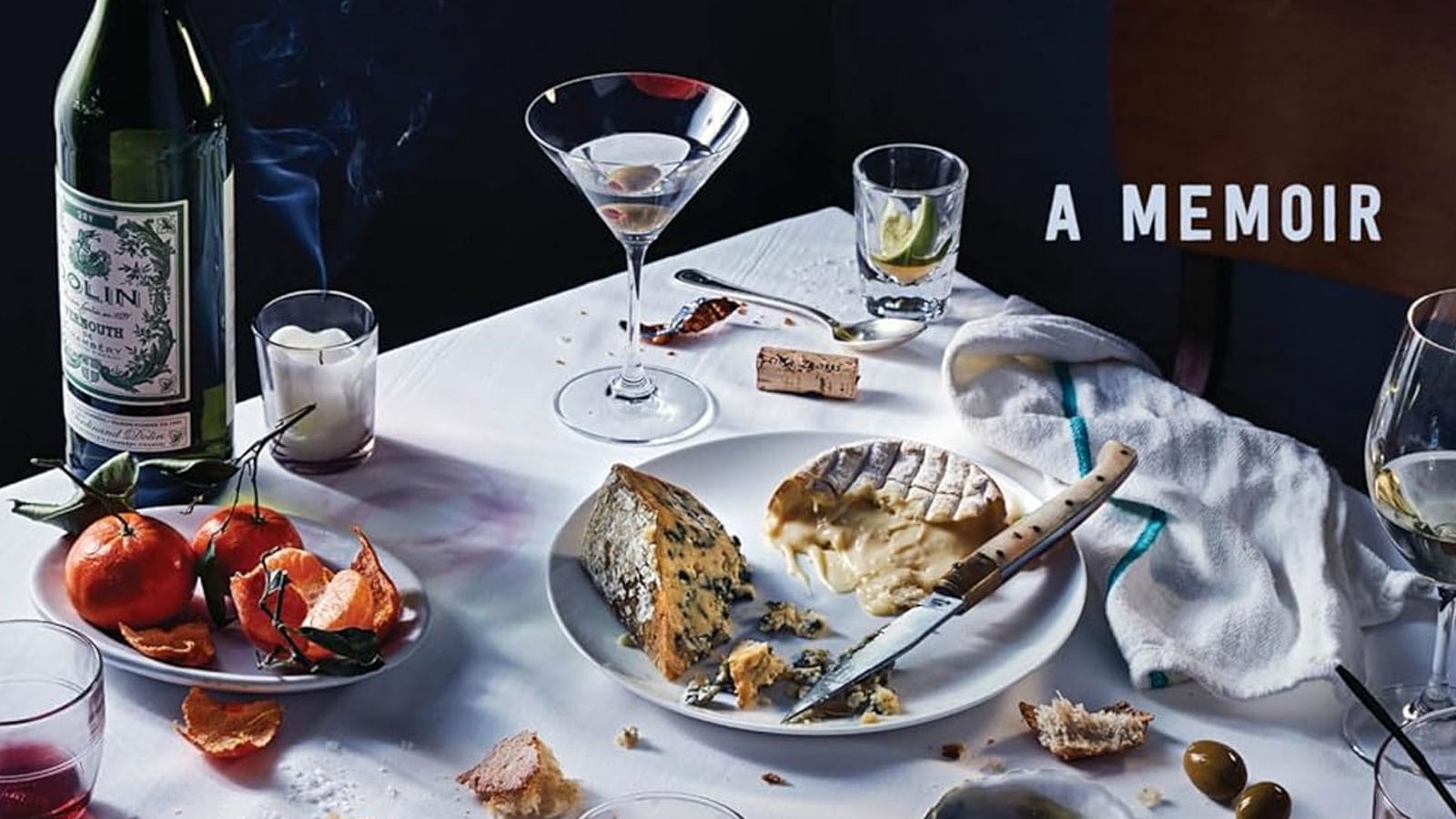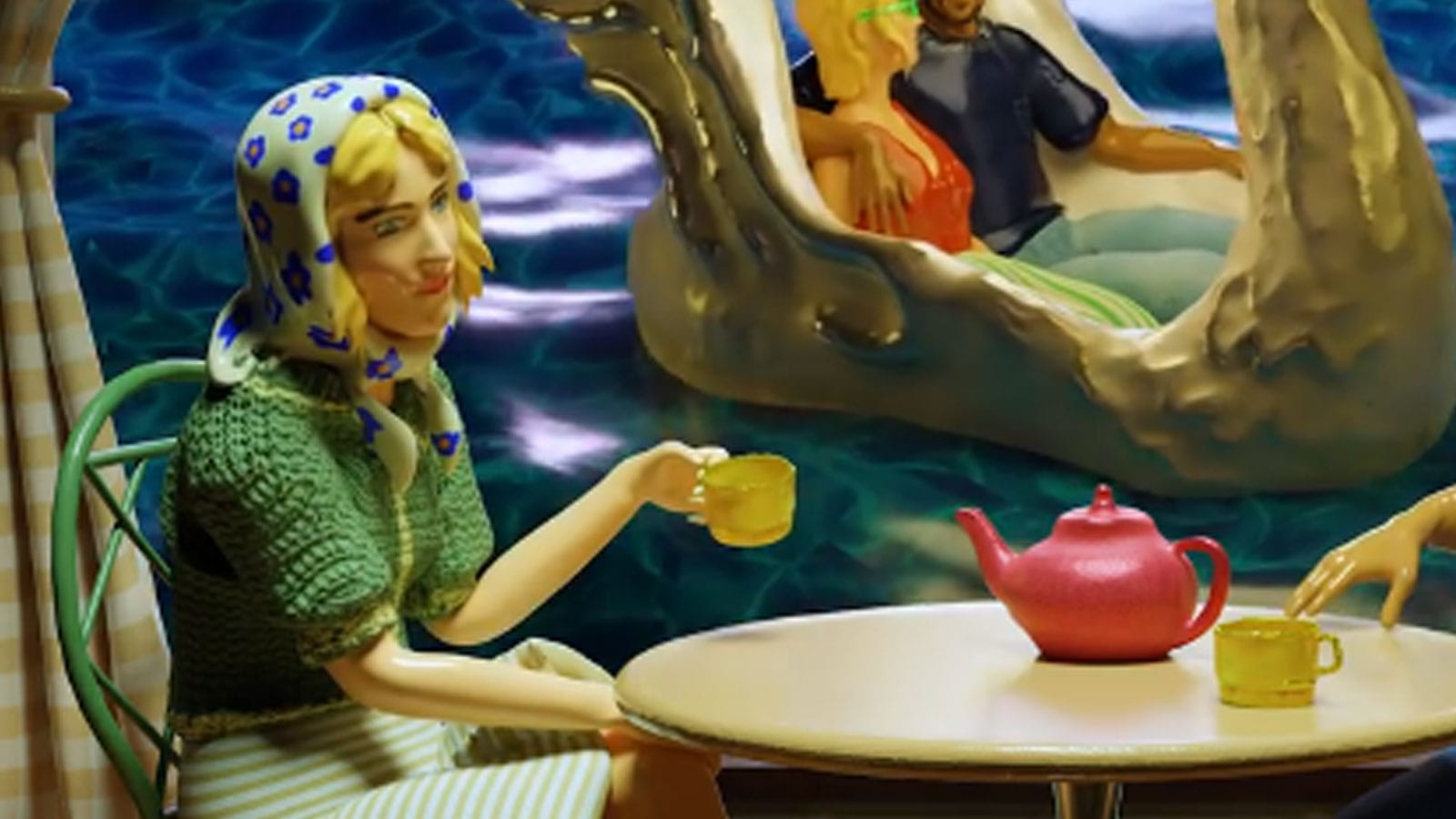 Cover detail of the forthcoming Care and Feeding, by Laurie Woolever
Today: Laurie Woolever, author of Appetites, World Travel, and Bourdain: the Definitive Oral Biography; Tom Scocca, editor of Indignity; and writer and editor Maria Bustillos.
Issue No. 154Giving Blood
Laurie Woolever Yakkin’ about AI
Tom Scocca and Maria Bustillos
Giving BloodI just finished final (?) edits on my memoir, which will be published in the spring. A few people “of a certain age,” by which I mean women 15 to 25 years older than me, cannot help but raise an eyebrow when they hear that I have written a memoir. (One of them even pronounced the word, “memoir,” with a French accent.) This makes me annoyed, and defensive, and it also reminds me of the elevation of my own eyebrows in response to women a generation younger than me, when they go around doing things that reflect a confidence I wish I’d had at their age (e.g. demanding clear limits in their job descriptions, setting boundaries in general, forming unions, refusing to put up with shit). Who the fuck do you think you are, writing a memoir? This is a question I have asked myself many, many times over the course of this process. And then I think, well, why not me? My book tells about my days as a private cook for various rich families, stories about culinary school, the publishing business, a happy ending massage in Tokyo, a parade of elderly Wizard of Oz munchkins. There are also stories about my doomed love affairs with weed and gin and men who were and weren’t my spouse. I worked as an assistant to Tony Bourdain, who is now dead but still an object of worship; also to Mario Batali, who has been exiled in disgrace from the public sphere. My experiences with those men are in my book, too. It’s been a strange mixed blessing to have a career so closely tied to famous men, men whose personas were well-known and meant so much to so many people. I wouldn’t have had half the opportunities I’ve had without them, and yet their celebrity left two outsized footprints on my career, and on my whole life, even. Bourdain himself learned that his fame would become an industry that more and more people relied on. His agent once said something to this effect to Nathan Thornburgh, who had just taken an investment from Tony in Roads and Kingdoms, his publishing company. Thornburgh told me the story for my book, Bourdain: The Definitive Oral Biography. “Just so you know, this guy throws a real big shadow,” she told him. “Best-case scenario, people will start to look at [Roads and Kingdoms] as Bourdain’s publication. If you do this right and it works out well, you’ll be Bourdain people.” So if my career is forever associated with a high-profile person who has recently transubstantiated into a meme, I can’t think of many or any others with whom I’d want that association. But it’s very weird, though. What’s my problem, exactly? Why am I still discontented about it? I spent a big chunk of time and energy propping up, learning about, supporting, enhancing the lives of more important and successful people than myself, in exchange for the security of money. That in itself is not a bad thing. If every single one of us decided to focus exclusively on self-promotion and self-knowledge, how much would really get done, right? However: there is a delusional, poisonous voice in my head, pure id, telling me I won’t be truly successful unless I am at least as rich and celebrated as my famously flamed-out employers. Fortunately for my future health and safety, there are at least eleven solid reasons why this level of success won’t come to pass; also, as a 12-stepper, I’ve been advised to be of service to others, in order to stop ruminating on the self. I answer phones on a crisis hotline for two hours a week, but I could be doing more. I’d rather give blood, though, than be a conversation partner to a lonely senior citizen. I’d rather pick up trash than hand out food. I’d rather write a check than collect signatures on a petition (but I am actually quite broke, because I took a year off to write my book, so maybe I ought to sell blood). In any case, I’m nervous about the upcoming work of self-promotion leading up to the release of my book. I’ve seen how very easy it is to become, as Tony once called himself, “a monster of self-regard.” Care and Feeding is now available for pre-order, wherever books are sold.
 Screenshot: YouTube Hydra Miles Klee’s review of Reagan in Rolling Stone is highly, highly enjoyable. Nearly worth making the movie, just to read it.
Yakkin’ About AI Screengrab of Fromm Studios animation, New York Times Maria Bustillos: I got in this deranged conversation on a listserv I’m on with these tech dudes who were all nonsensically wrangling over whether or not AI can make art, and it’s so striking how tech people never seem to consider AI “art” from the POV of the reader or listener, or anyone who’d have to endure the crap machine-derived end product; invariably they’re arguing in favor of the dignity of the person “making” said product. And I honestly…I don’t care about any of that at all. My thing is just, I don’t want to waste what little time I have left on anything a machine burped up. Tom Scocca: Did you see this? Opinion | An Experiment in Lust, Regret and Kissing A purported “contest” in the New York Times between the writer Curtis Sittenfeld and an AI Large Language Model, to see if the reader could tell which of two "beach read" stories, based on crowdsourced prompts, was written by the human and which was generated by the machine. MB: Yes. TS: It was stupid easy to do. MB: Oh yeah? How come? TS: It wasn’t obvious to you? MB: I just glanced at it and scampered off, didn’t try. But everyone I saw talking about it agreed with you. Hrmmm let’s see. “Eyes that seemed to dance with mischief” ???!!!!!!!!!!!?? Yikes, n.b. they are both terrible. TS: Well I assume that the task made [Sittenfeld] write in an extra-antic mode to show off how very human she was, which made her piece read as very uncanny. But the AI piece is so fucking dead. MB: Yeah. TS: I struggle to find the right way to talk about this because it sounds self-congratulatory and vague but AI writing is immediately repulsive and unreadable to me. MB: I would rather read BAD fiction written by a real person than “good” anything made by an AI, is what I want to say. But even if it could fool me into thinking a real, and bad, writer wrote something, I wouldn’t feel caught out, I would feel I’d been swindled, by a disgraceful person. The machine doesn't try to fool you by itself; a person tries to fool you. (Or fool Spotify. I can't wait to see what happens with that.) You and I read a lot of terrible nonsense! But offered in either good faith or bad, by a human being with real reasons. TS: Like everyone who says this sort of thing ends up jabbering about the presence of the soul or whatever. MB: HEY. lol Well. Yes. My husband and I were talking about this and he said, What if the AI made a really great thing? and I’m like, I’d know! and he’s like, How? TS: From reading a lot of terrible nonsense I’ve developed an intuitive feel for how a person is trying and failing to accomplish something on the page. And I automatically try to look through the AI writing to see the mind at work, and I can't find anything there. It's not just an empty cage, the bars are trompe l'oeil and the space that looked like a cage is flat. MB: Plus, just out of habit, I don’t read anything now—a book, a draft, whatever—without trying to understand a little bit first about where it came from and why. I’ll have to know some rudimentary amount about the author. I’m not even claiming to have have a sixth sense about it, even if that’s maybe true after so long; it’s because I’m actively trying to get a sense of the writer’s intention before I start, so I can understand better. Which is where it gets embarrassing, obviously; having to admit you believe there is an objective “reality” there. (But I do.) TS: The AI writing really is dead, like my brain can’t process it. Consumer Reports has automated its product ranking writeups and even within those very narrow and formulaic constraints my eye still slides off the text. MB: People can produce dead writing, too, though. The earliest “Turing experiment” conversations are extremely wooden compared to this AI / Sittenfeld smackdown, without question it’s gotten “better,” but the thing is, again, I could fucking care less if the machine can fool me, any more than I care that a machine can win at chess. Yay machine, you go, machine, who cares? The reason I read a book is, specifically, that a person wrote it; I want to know who the writer is, why they are writing this, is it for an interesting reason, are they any kind of a communicator at all? Can they increase my awareness in any way, with a perspective, a lie, a joke??? None of that counts unless they’re human, like me, like my readers... TS: But “counts” how? MB: People like oneself, who were born and will die, are sharing this rare, crazy, terrifying experience, and I am interested in what they’re making of it in so many ways. Like on just the John Donne level of “No man is an island,” also the shared consciousness of history, culture…also the feeling of camaraderie, humor?? TS: To me it’s like food, lots of people are bad cooks, who make disgusting or even unsafe food, but all of it exists in one category totally apart from the unholy experience of biting into a chunk of styrofoam. MB: EXACTLY. Even the fanciest styrofoam would be inferior to a gross cookie. TS: See I reject even the comparison. It’s not inferior, it’s not on the same scale. MB: This is true but it would ALSO be inferior in the sense of, given a choice. TS: The answer to “Would you like to eat some styrofoam?” isn’t “Maybe, what else you got, and what’s the price?” It’s “No.”
Tell everyone you know and love to subscribe! to Flaming Hydra.
|